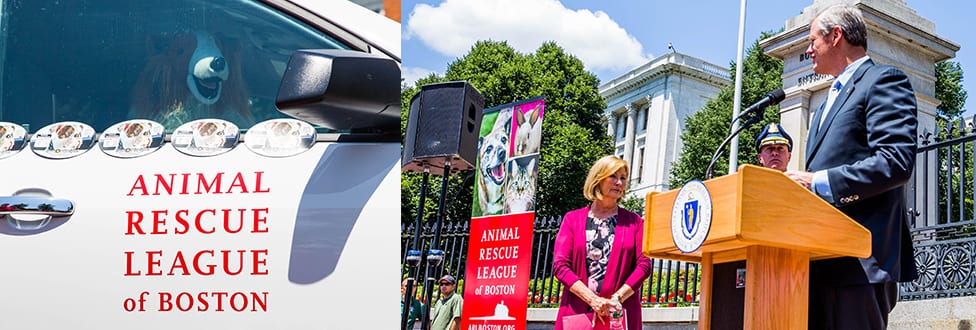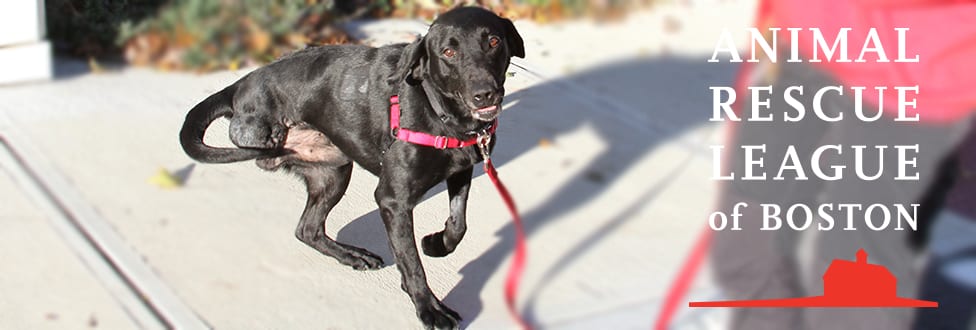PAWS II Signed into Law
PAWS II further bolsters Massachusetts animal protection law
The Animal Rescue League of Boston (ARL) is pleased to announce that Governor Charlie Baker has officially signed PAWS II into law. An Act to Protect Animal Welfare and Safety in Cities and Towns passed unanimously in both the Senate and House, and was part of a whirlwind of activity for Governor Baker this past Thursday, who signed 53 bills into law.
PAWS II is an enormous step forward for animal protection law in Massachusetts and includes the following provisions:
- Establishes a commission to explore mandatory reporting of animal cruelty (ARL will have a designated representative)
- Ensures property owners check vacant properties for abandoned animals
- Prohibits the automatic euthanasia of animal fighting victims
- Ensures more efficient enforcement of animal control laws
- Prohibits sexual contact with an animal
- Prohibits the drowning of animals
- Requires insurance companies offering homeowners or renters insurance to record and report circumstances surrounding dog-related incident claims to the MA Division of Insurance, the clerks in the Senate and House, and the ways and means committees for three years (last report to be filed by Jan 1, 2022)
“This legislation is a huge leap forward for animal protection in Massachusetts and was several years in the making,” said ARL President Mary Nee. “The Animal Rescue League of Boston is thrilled with its passage and appreciate the hard work and dedication of our elected officials to make the welfare of animals throughout the Commonwealth a priority.”
PAWS II builds upon the original PAWS Act that was passed in 2014 and was born out of the horrific discovery of the dog forever known as Puppy Doe in 2013. Along with increasing animal cruelty penalties and requiring veterinarians to report suspected abuse, the PAWS Act created the Animal Cruelty and Protection Task Force. ARL President Mary Nee was part of the 11-member group who was charged with investigating the effectiveness of existing laws, and determining where gaps still exist.
The PAWS II Act is a direct reflection of the Task Force’s hard work and recommendations.
ARL worked in collaboration with the Humane Society of the United States, MSPCA, and Best Friends Animal Society to educate the public and advocate for the passage of this bill and would sincerely like to thank the following legislators for their leadership and commitment to animal protection:
PAWS II Sponsors: Senator Mark Montigny; Senator Bruce Tarr; Representative Louis Kafka
Conference Committee: Representative Jim O’Day; Representative David Muradian, Representative Sarah Peake; Senator Tarr; Senator Montigny; Senator Adam Hinds
MA House: Representative Robert DeLeo (House Speaker); Representative Jeffery Sanchez (House Ways and Means Chair)
MA Senate: Senator Karen Spilka (Senate President); Senator Harriette Chandler (Former Senate President)








